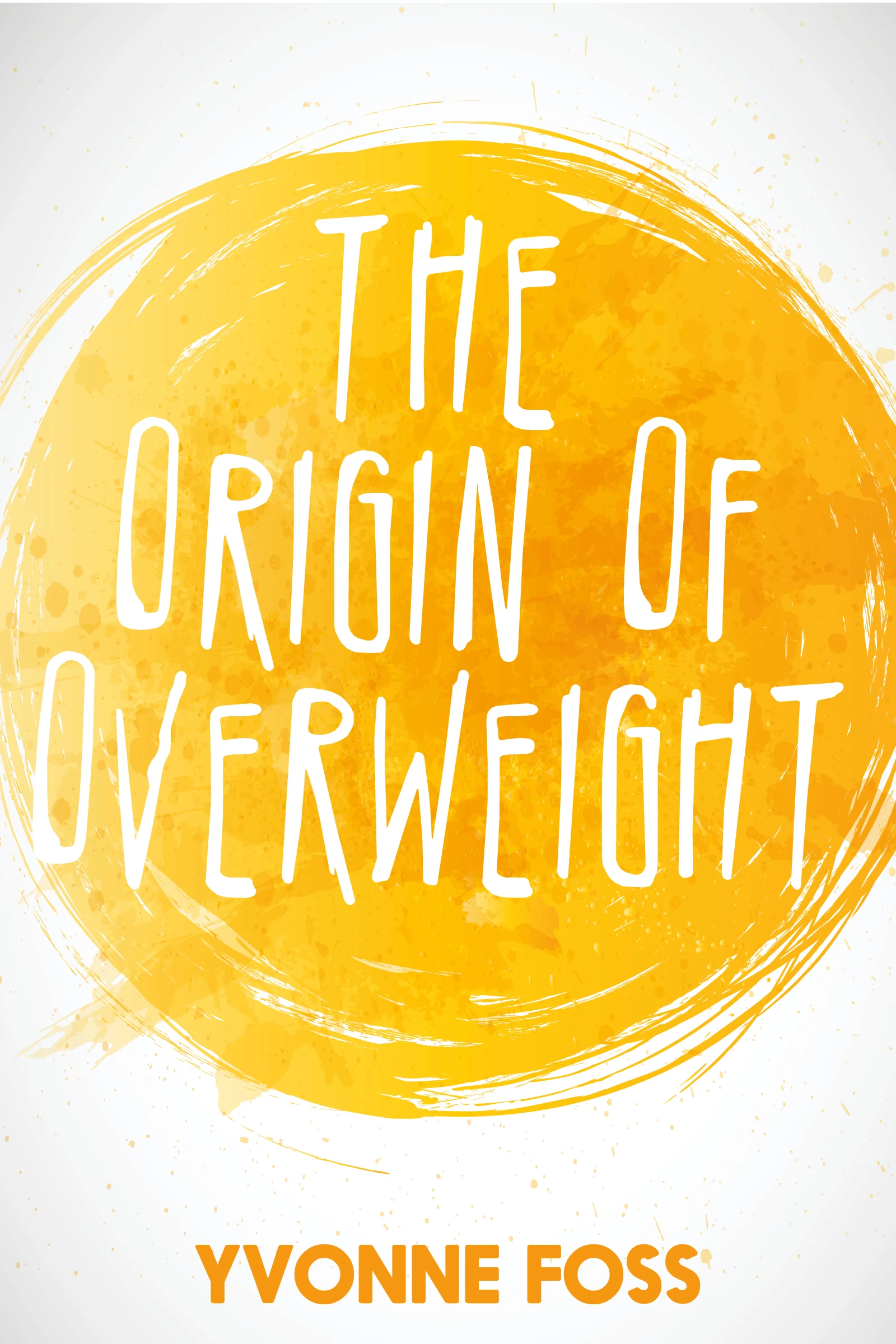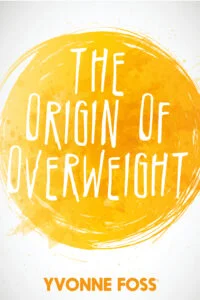One of the many advantages of being self-published is the freedom write and issue books on whatever subject you wish. In our occasional series, “Why I Write What I Write”, British medical researcher Yvonne Foss shares the case study of her non-fiction book about her new approach to overweight, which was published at the end of last month. Yvonne is also author of Vitamin D deficiency is the cause of common obesity, one of the most downloaded and cited papers published in the journal Medical Hypotheses.
Having been an avid reader since my teens, I had long held a vague ambition to write a book ‘one day’, with several ideas spanning different genres, but no particular aim. When I finally got going, it was inevitable perhaps, given my circumstances, that my first book – The Origin of Overweight – should be a popular science book with a medical condition as its subject. I started writing it when I stumbled upon an idea that would explain the cause of the epidemic of overweight – an idea that is very different to the usual thinking.
Writing During Illness
Chronic illness had left me unemployable at the time, so writing was the only kind of work I could do. With no deadlines to meet, I could write a little at a time, and re-write, revise and edit as many times as necessary to make up for my limitations. I know that I am not alone in that respect – many authors, like Nelly Harper, have turned to writing when they lost their job because of ill health. Even Charles Darwin struggled to get The Origin of the Species written and published because of chronic ill health.
I had trained in a basic science department of a medical school so my background was in understanding the cause of disease, and seeking new treatments. I therefore wrote The Origin of Overweight with two points of view – one as a scientist and the other as a patient.
Dual Viewpoints on Overweight
I had always been puzzled by the cause of overweight:
- As a scientist, the usual answers did not satisfy me. If it’s about genetics, why do some people (like me) become overweight after remaining the same weight for years? If it’s about our food supply, why is the range and variation so high, and why is the distribution so skewed to the right? In other words, why are some people in the same food environment severely overweight, others slightly overweight and others not at all?
- As a patient, the established view of my illness did not accord with my reality, and I knew from my own experience that the patient voice is not heard. I understood the need to listen to patients and to relate any theory to their experiences. The established view of overweight was that all you had to do to lose weight was try a little harder, as if it were easy, when clearly it was not. Millions of people were trying to lose weight but finding it difficult, yet their efforts were belittled. And the cause of weight gain was often assumed to be psychological and individual, even as it affected millions of people around the world at the same time. Underlying all the thinking about overweight is a pursuit of someone to blame, rather than a search for insight.
The Writing Process
When I started the book, I knew it would take a long time because I could spend so little time writing each week. I thought perhaps it might take as long as five years. In fact, it took twice that time from concept to publication of the print edition. It was a frustrating ten years. I often wondered if I would ever get it finished, but I was motivated to keep going by my fascination with science, by the TV programmes that turned treatment of a medical condition into a sport, and by the media reports that heap blame and shame upon people who happen to be overweight through no fault of their own. Awful as those reports were, they spurred me on to offer my alternative view.
My hope is that readers will put my ideas to the test and see if they can make sense of their real-life experiences. At the very least, I hope my book will help to change the way people think about overweight and help to end the victim-blaming rhetoric that does nobody any good.
As an indication of the content of Yvonne Foss's book, here's an extract from its blurb:
The Origin of Overweight investigates the link between vitamin D and body weight. This eye-opening exploration reveals that the effect of fossil fuel emissions on ultraviolet radiation is one aspect of climate change that has been overlooked – yet it could be the main cause of the rise in obesity. It shows why a deeper understanding of biology and climate change is necessary to deal with the problem of overweight and obesity, and why our obsession with the usual suspects of food, drink, diet, and exercise is having little effect.
If you enjoyed this post, you might also like to read these other posts on this blog by authors who have taken up writing during illness:
- How Illness Turned Me into an Indie Author by Nelly Harper (breaking news: Nelly has today published her second book, The Jet Necklace
- How Self-publishing Saved My Life by Paul Tomkins
OVER TO YOU Please feel free to ask Yvonne questions about her book and her conclusions about overweight, as well as about her self-publishing experience.
How illness made a medical researcher turn #selfpublisher #WW Share on X







This is a fascinating theory, Yvonne. I’m about to launch a self-published book called Overcome your Sedentary Lifestyle. As a holistic healthcare provider with a background in Physical Therapy, a private practice massage therapist, personal trainer, and yoga instructor, I’ve always considered weight management to be a function of diet, exercise, developing healthy self esteem, and retraining the mind/messages we are taught from childhood about our relationship to food and to ourselves. I’ve also always felt that there was a piece missing from this puzzle.
What is it that turns on that magical switch in the mind that allows certain people to overcome all the hurdles to losing weight? Perhaps you’ve found it! If we can bottle it…someone’s going to get rich, LOL. More importantly, such a discovery could have life changing–and dare I say–world changing consequences. I look forward to reading your book! Thank you for your perseverance in writing it.
Thank you PJ. I do believe I may have found the missing ingredient, but it is now up to readers to put it to the test. I would be interested to hear your views as a practitioner, and whether you can relate my ideas to the real-life experience of your clients.
You might be interested to read a short section in Chapter 9, in which I suggest how my ideas can be incorporated into existing services to make weight loss strategies more effective in the future.
[…] Yvonne Foss One of the many advantages of being self-published is the freedom write and issue books on whatever […]
I live in Tennessee, U.S. A. State government records show 31% of the population of 6.5 million people in my state are overweight. Tennessee ranks 4th fattest of the fatties. Neither I nor my wife are fat, which means we are not obese by definition. I just want to say thank you, Yvonne, for your book. We have some friends who need to see your work. Keep up the good fight.
Ben Boyd, Jr., Author
AZ2016 NEO, The Qixi Virus, and The Fires of Fear
books in my series, The Fall of the Americas
Ben, you make an interesting point about the high rate of obesity in Texas. Whether you are overweight or not has much to do with where you live. I use science in the book to explain why this is – and it has nothing to do with takeouts! I think we have real hope of reversing the obesity epidemic if we first let go of the obsession with food intake and take a more objective, scientific view.